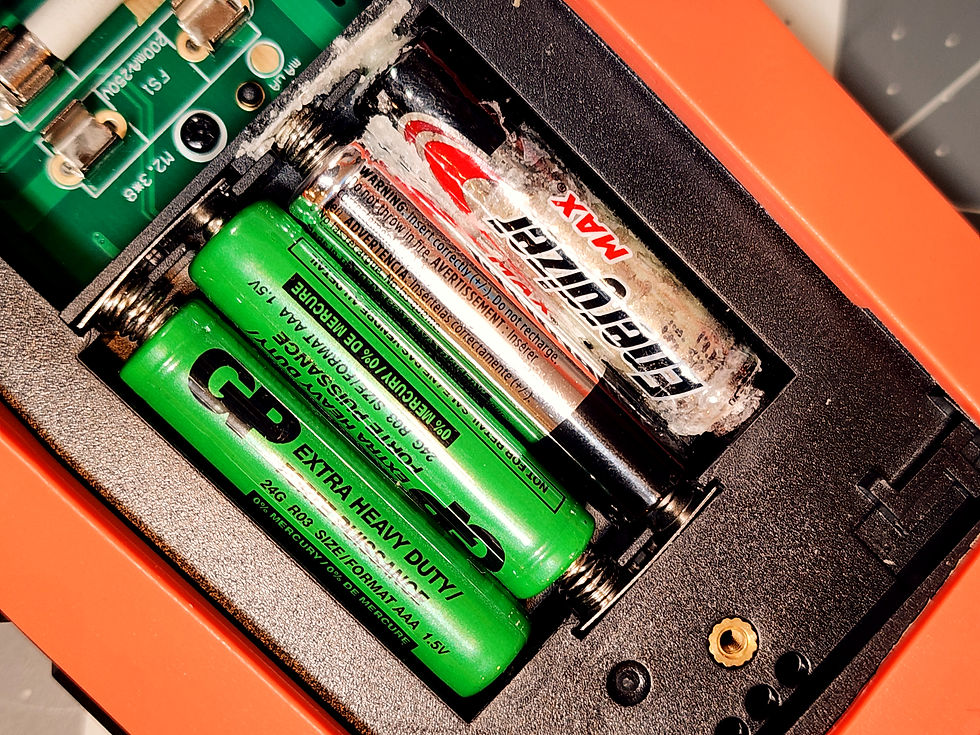Digital vs Analog Meters..
- Darren Walker
- Jul 24, 2023
- 2 min read
Digital and analog multimeters are two different types of measurement instruments used to measure electrical quantities. Each type has its strengths and weaknesses, making them suitable for different applications. Here are the pros and cons of digital and analog multimeters:

Digital Multimeters (DMMs):
Pros:
Accuracy: Digital multimeters provide higher accuracy and resolution in measurements compared to analog multimeters. The readings are displayed as precise numerical values, making it easier to interpret results.
Easy to Read: The digital display shows clear and easily readable measurements, even in low-light conditions or from a distance.
Additional Features: Many digital multimeters offer various measurement functions, including capacitance, frequency, duty cycle, temperature, and continuity testing.
Auto-ranging: Most digital multimeters are auto-ranging, automatically selecting the appropriate measurement range, simplifying the measurement process for users.
Data Storage: Some digital multimeters have data logging or memory capabilities to store and recall previous measurements.
Built-in Backlight: Many digital multimeters come with a built-in backlight, enhancing visibility in dark environments.
Cons:
Cost: Digital multimeters tend to be more expensive than analog multimeters, especially those with advanced features.
Response Time: Digital multimeters may have a slight delay in updating measurements compared to analog meters, especially in fast-changing electrical signals.
Analog Multimeters:
Pros:
Real-Time Readings: Analog multimeters provide real-time measurements displayed as a moving pointer on a scale, offering a continuous representation of the changing values.
Simplicity: Analog multimeters are simple to use, with no need for batteries or power supply since they are self-powered by the measured current.
Response Time: Analog meters have faster response times, making them more suitable for quickly changing signals or troubleshooting dynamic circuits.
Cons:
Lower Accuracy: Analog multimeters have limited accuracy and resolution compared to digital multimeters, which can make precise measurements challenging.
Subjective Reading: Interpreting readings on an analog scale may be more subjective and prone to parallax errors, leading to potential inaccuracies.
No Extra Features: Analog multimeters usually lack additional features found in digital multimeters, limiting their application versatility.
Choosing Between Digital and Analog Multimeters:
For precise measurements and professional applications that require high accuracy and additional features, a digital multimeter is the preferred choice.
For hobbyists, basic electrical tasks, or quick assessments of changing signals, an analog multimeter may be more cost-effective and suitable.
In conclusion, the choice between digital and analog multimeters depends on your specific needs, budget, and the level of accuracy and functionality required for your intended applications.





Quote:
"Simplicity: Analog multimeters are simple to use, with no need for batteries or power supply since they are self-powered by the measured current."
what does it means?
Analog multimeter still need a battery as a power source. But the power source only being used or the current only flow from the power source when doing measurement (continuity, diode, resistor), so the battery last longer time.
on the otherhand Analog panel (as a current and voltage panel display) don't need independent battery / "self-powered by the measured current").
CMIIW. Thankyou.